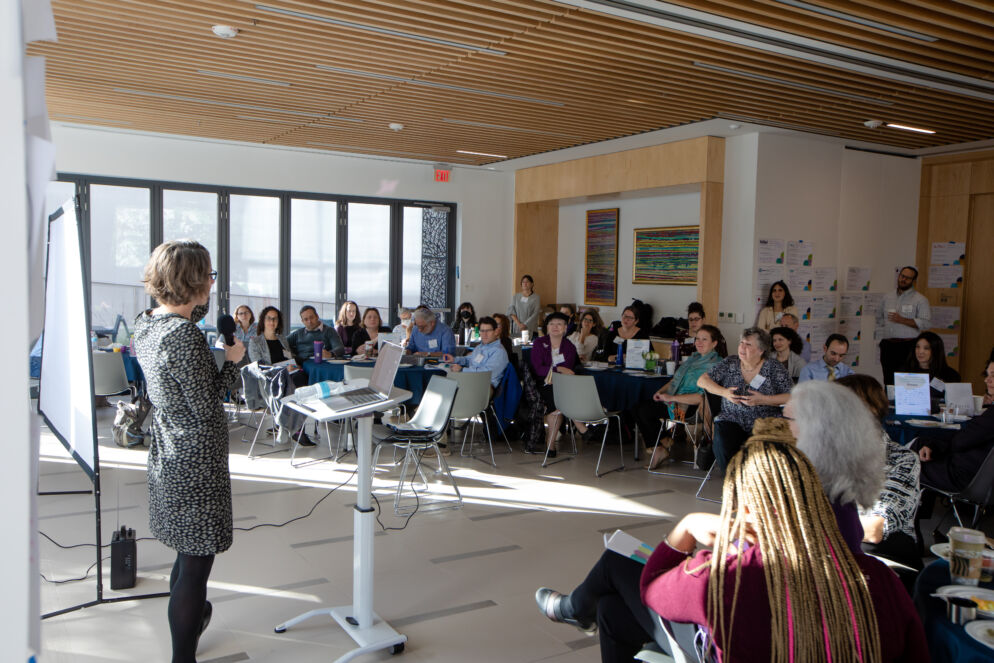
The George Washington University’s Graduate School of Education and Human Development announced plans last month to open a new center for Jewish learning on its campus. Known as “The Collaboratory,” it is meant to further Jewish education and establish several priorities for the future of Jewish education at the school.
The creation of the Collaboratory is the result of several years’ worth of planning and preparation meant to expand the possibilities of Jewish education and increase efficiency in previous initiatives undertaken by three Jewish educational institutions at the school that have now come together to create this new program.
“The field of Jewish education is ready for an entity well-equipped to operate as a central address,” Dean Michael Feuer of GW’s Graduate School of Education and Human Development said in a statement. “The Collaboratory is positioned to lend vision, coherence, and rigor to a diverse and segmented field, and to explore the underlying dynamics that influence communal and individual decision-making, investment, and concern related to Jewish education.”
Now, several weeks after the announcement, the Collaboratory is underway and the three organizations — The Collaborative for Applied Studies in Jewish Education for research, the Mayberg Center for Jewish Education and Leadership for public engagement, and the graduate programs in Israel Education and Experiential Jewish Education for academic preparation — are starting the process of working together and navigating the new space
they share.
The center will be directed by a partnership between Dr. Benjamin M. Jacobs and Dr. Arielle Levites, who have each been with the university for several years and previously oversaw some of the programs now under the Collaboratory.
“It’s bringing all three of these programs together into something bigger, more substantive, more anchored in the university in the form of this center, but also realizing that we could do more. We’ll continue to each have our own areas of focus, but [we realized] we could do more and achieve more to really advance our own missions and our own objectives if we worked together more,” Jacobs said.
Jacobs directs the Mayberg Center and the educational graduate programs, while Levites oversees the CASJE program, bringing together these programs with different purviews and allowing them to cover issues of Jewish education and the American Jewish experience more holistically.
“Each of the programs independently has its own expertise and network and audiences, and what I really love about the Collaboratory and the structure and the vision that it provides is that we sort of pull all of those pieces together,” Levites said.
And another part of the benefit that comes from the Collaboratory is the reduction in redundancies that could happen on occasion, as the programs did have some overlap in their work.
Jacobs identified one such area of improvement coming from their program managers, including Naomi Gamoran, who previously was the program manager for CASJE under Levites.
He said that the skills each program manager had, like Gamoran’s excellence with spreadsheets and numbers, can now be applied over all the programs instead of having people from each program work on every aspect of the job for their respective group.
The Collaboratory has already begun involvement in several initiatives, including the launching of a speaker series on campus antisemitism, an annual fellowship and summer institute on antisemitism and Jewish inclusion, the recent creation of a CASJE Research Digest after the Oct. 7 Hamas attack on Israel, and the sixth annual cohort of its Israel education program.
This current work is indicative of the center’s goal to enhance Jewish education and research issues faced by the modern Jewish community, and it’s coincided closely with a time filled with change and difficulties within the greater Jewish community.
“Even as this [center] was all envisioned, and this is a conversation and a program that actually has been developing over the course of years, I do think that we feel we’re building a place where we can really grapple with many of these issues and a space that is seen as expert, as open, as trusted,” Levites said.
She added that the networks and prior initiatives the Collaboratory is involved with will hopefully allow them to get a good sense of what the Jewish experience in America
is like.
Levites said that the center will be well-equipped to handle the research and educational shifts that may be happening and that all three groups have proven their individual skills, making their future of collaboration all that more exciting.
“[The Collaboratory can serve] As a place that can bring in new people and ideas and that has room both for imagination and also evidence,” Levites said. “And we want to bring all of that to bear to really understand the American Jewish experience today and imagine what the responses are going to be to ensure continued vitality and flourishing of American Jews and American Jewish education.”





